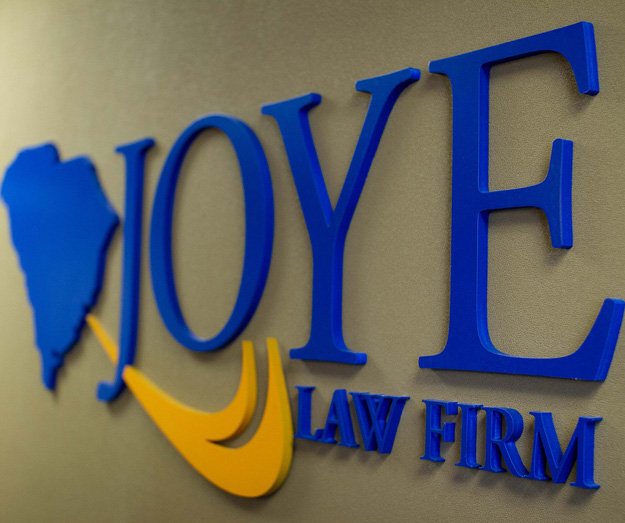(By: Ken Harrell, Joye Law Firm Partner)
Note: Mr. Harrell is the head of the workers’ compensation department at Joye Law Firm and serves on the executive committee of the Association of South Carolina Claimant Attorneys for Workers’ Compensation.
Recently, I read Lou Dobbs’ latest book, “The War on the Middle Class.” Many of you may be familiar with Mr. Dobbs, who has been the host of CNN’s Moneyline for years. A life-long Republican, Mr. Dobbs is certainly no liberal, but he sets out a convincing case in his book that working people in the United States have had their rights eroded and have been rendered voiceless in our nation over the last 20 years.
Mr. Dobbs writes about how the obscene amounts of money that corporations and their lobbyists pour into the political campaigns of both Republicans and Democrats has served to make the majority of our elected officials (at the national and state levels) beholden to big money interests, as opposed to being responsive to what is best for the average working man or woman. The results of this erosion of the rights of working people are evident in many ways. Stagnant wages; the transfer of hundreds of thousands of good-paying manufacturing jobs from the United States to third world countries; the inability to protect our borders from illegal immigrants; spiralling healthcare costs while the quality of care seems to decline due to our physicians being hamstrung by insurance companies; and widespread tort “reforms” that favors big business interests over the rights of individuals are but a few of the examples of what is happening in this country as the result of a “war” on working people.
Unfortunately, the “war” on working men and women has not been limited to members of the middle class. The working poor in our country have also faced out-right hostility from well-funded politicians. The fact that a Republican-controlled Congress failed to raise this country’s federal minimum wage from $5.15 from 1997 through 2006 is more than bad policy – it is a moral indictment of a self-described Judaeo-Christian nation’s failure to look out for “the least of our brethren.” “Inasmuch as ye have done it unto one of the least of these my brethren, ye have done it unto me.” See Matthew 25:40 (KJV). Hopefully, some change is in the works. Within 20 days of starting the 2007 legislative session, the new Democratic-controlled House voted to raise the federal minimum wage from $5.15 to $7.25. However, if his past statements are any indication, there is a good chance that this bill will be vetoed by President Bush.
Closer to home, the current attack on the rights of injured workers in South Carolina is but yet another example of an attempt by “big money” (in this case, the insurance industry) to trample the rights of our working men and women. A Senate bill supported by the “Civil Justice Coalition” (a collection of insurance companies and large corporations) would erode many of the rights that injured workers in this state have enjoyed since our Workers’ Compensation Act was enacted 70 years ago.
The only reason that a workers’ compensation system was ever enacted in this country is that big business was smart enough to realize that it would be more cost-effective for employers to be immune from civil liability when workers suffered catastrophic injuries (such as paralysis and brain damage) or were killed, even if that meant providing some safety net to injured workers by insuring that they would receive medical coverage and limited benefits under a workers’ compensation system. As such, workers’ compensation was the original “tort reform.”
This original tort reform is apparently no longer satisfactory to the insurance industry, which is calling for major cuts in the rights of injured workers in South Carolina. One change the Civil Justice Coalition proposes even goes so far as to require that all South Carolina appellate court decisions over the past 70 years related to the rights of injured workers be rendered null and void and that any future review of a workers’ compensation decision by an appellate court must decide whether the result would be “economically feasible” for the insurance industry.
Over the past year and a half, I have spent countless days in Columbia at legislative sessions and in meetings with numerous legislators, along with several other dedicated attorneys for injured workers. The truth of the matter is that with the exception of the lawyers for injured workers, there is no one else in this state who is speaking out for the worker. Working men and women certainly cannot afford to hire lobbyists and they also cannot afford to give contributions of several thousand dollars or more to our state’s politicians or to political action committees organized by politicians. In many states, unions still have some clout they can bring to bear on these types of debates but “union” has been a dirty word in South Carolina for decades. With the flood of manufacturing jobs leaving the state and the erosion of worker rights, we may be seeing the result of this fact.
It is regrettable that the workers’ compensation insurance carriers have been largely successful in pitting the state’s employers against their employees in this debate. Businesses in this state have every reason to be upset with double digit increases in their workers’ compensation insurance premiums over the past few years. While our state still ranks in the bottom 1/3rd when it comes to the cost of workers’ compensation insurance on a per capita basis, our state’s economy cannot grow as we would all like to see it grow if these insurance premiums continue to increase at the rate they have been increasing over the past few years.
With that in mind, the key question in the debate over any specific proposed change to our current law should be whether the proposed change would actually result in premiums coming down.
As I noted above, I have been present at several legislative committee hearings on proposed workers’ compensation legislation. The one group which has largely been absent (with the exception of its lobbyists parading under misleading names such as the “Civil Justice Coalition”) has been the insurance industry. While the insurance companies are loathe to send representatives to these hearings as they know they will not commit to premiums coming down if worker rights are cut, the National Council on Compensation Insurance (which is the nation-wide trade group for workers’ compensation insurance companies) studied many of the proposed changes when they were pending during the 2006 legislative session and concluded that at best, the reductions in worker benefits would only reduce South Carolina workers’ compensation insurance premiums by approximately 2.1%. Do we really want to place a harsher burden on men and women who have suffered the most severe injuries in exchange for a 2.1% decrease in workers’ compensation premiums? If we truly are a Christian society, I would hope not.
We have already seen this insurance industry tactic before in the debate over medical malpractice “reform.” Despite the fact that medical malpractice verdicts in favor of a patient in South Carolina are about as common as the Red Sox winning the World Series, hundreds of doctors paraded through the state house sharing anecdotal stories about how frivolous malpractice claims were driving doctors out of the state and out of the practice of medicine. (The actual statistics indicated that the number of doctors in South Carolina has been increasing at a significant rate each year over the past 20 years, far in excess of the growth that our state’s population has experienced.) Convinced by these stories (and quite possibly by the hundreds of thousands of dollars that the insurance industry and medical organizations poured into their campaign coffers), our state legislature enacted sweeping medical malpractice damages limitations in a law passed in 2005.
Interestingly, the only group which seems to have benefitted from these changes has been the insurance companies. I have many friends who are outstanding doctors. In speaking with these doctors, none of them relate any savings in their malpractice insurance, and many of them complain that dealing with insurance companies has them considering a change in their work, especially in light of the squeeze that health insurance companies have been placing on doctors for the payment of services. (Each time I hear a doctor friend tell me these things, I feel like screaming, “I told you – it’s the insurance companies, dummy!”) The insurance companies now have a medical malpractice system that will cap the amount they have to pay for the most catastrophically injured patients whose doctor made a mistake, while the doctors have to continue to deal with increasing insurance premiums.
One can only hope that this mistaken approach will not be repeated with our workers’ compensation laws. Fortunately, there are some elected officials who have recognized that the light in this debate needs to shine on the insurance industry. Senator Glenn McConnell of Charleston has been a leader in repeatedly stating that he wants the insurance companies to have to account for tens of millions of dollars in increased premiums that workers’ compensation insurance companies have charged since 2003 related to increases in what the insurance companies refer to as the “lost cost modifier.” It would take a small book (and perhaps an economics degree) to explain and understand the “lost cost modifier” but it should be pointed out that the South Carolina Department of Insurance (under Governor Mark Sanford) stopped regulating the “lost cost modifier” factor for workers’ compensation premiums in 2003. Our state’s workers’ compensation premiums began to significantly increase that same year. You don’t have to be Albert Einstein to see that there may be a connection there. As Senator McConnell stated at a recent Senate subcommittee hearing on workers’ compensation proposals, every business owner in South Carolina deserves to hear what the insurance companies have been doing in regard to the lost cost modifier in this state.
This is a complicated debate, but one thing is clear. If you are one of the people that the country band Alabama pays tribute to when they sing about every person who “works a 40-hour week for a living, just to send it on down the line,” you owe it to yourself to write, call, or go visit your state senator and state representative to ask them to please look out for the rights of South Carolina’s workers under our workers’ compensation system. One of the hardest things we have faced in this debate is getting workers motivated to get involved. Those people who have already been injured understand that any changes to the law will not impact their claim, so they have limited motivation. Other workers are inclined to think that they will never get hurt, so none of this will ever affect them.
I hope you will not sit idly by and watch yet another one of your rights be wiped away. Lou Dobbs got it right. There is a “war” being conducted on working people in this country and in this state. I grew up in a blue-collar family and what is happening to working people in this country breaks my heart. Working South Carolinians do have a choice. They can sit idly by and do nothing and be trampled, or they can do what Americans have always done in a war situation – fight back and win!







































